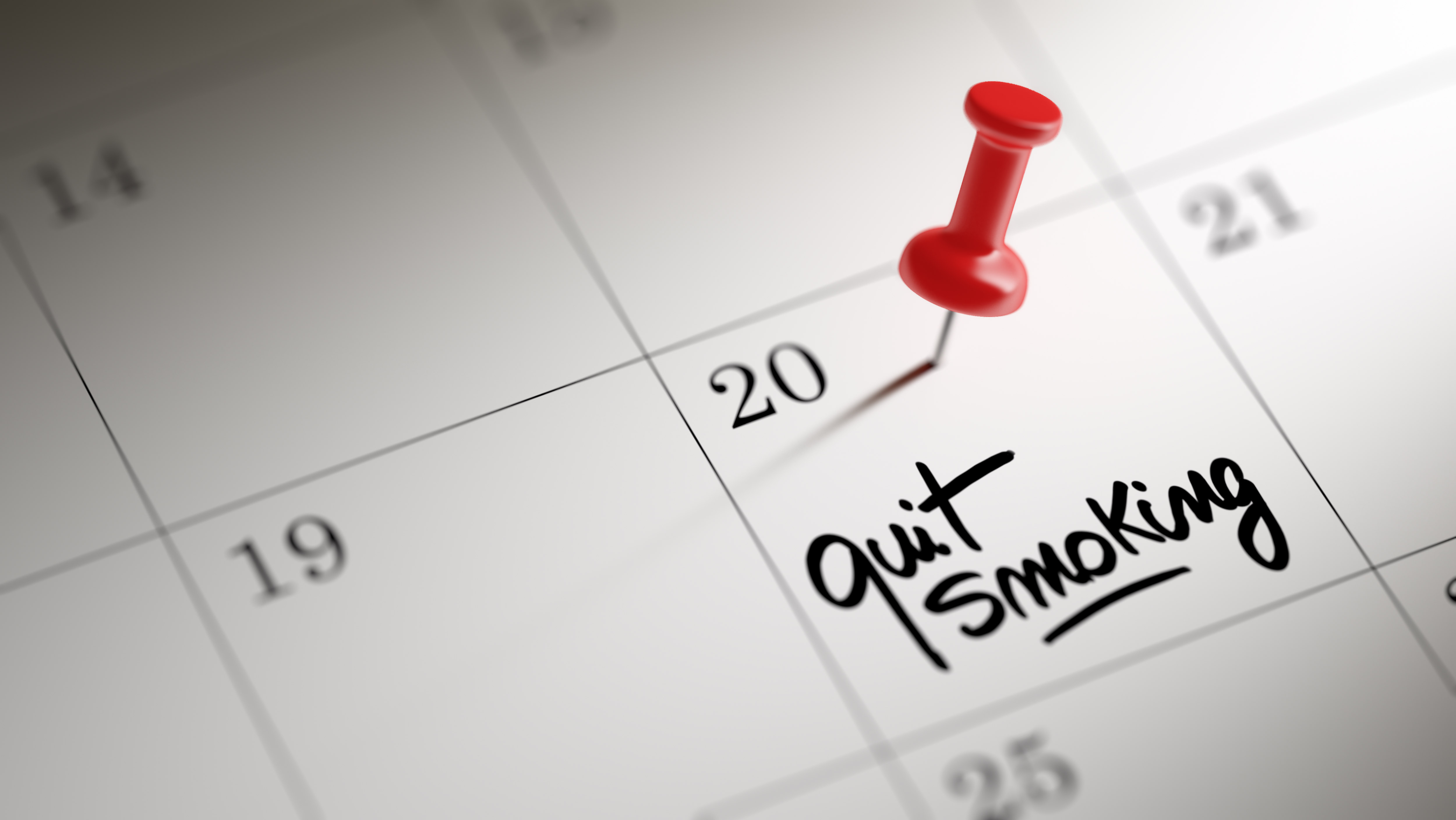
If you’re a smoker and you’ve made the decision to quit, you should be very proud of yourself. It’s not easy to break your addiction to smoking and nicotine, and you may feel overwhelmed by the process.
For some smokers, Nicotine Replacement Therapy (NRT) products have helped them manage cravings. Others turn to prescribed products like varenicline and inhalers to stay on track with their quit. Still, more may test their willpower and look for natural remedies to quit smoking.
Read on to discover strategies to quit smoking without prescription medication.
Make A Quit Smoking Plan
Breaking a nicotine addiction and saying "No" to cigarettes is no easy task. If you’re trying to quit cold turkey, without medication, you'll need a substantial amount of willpower and support. One of the best things you can do if you’re trying to quit smoking without prescription medication is to create a step-by-step plan and stick to it. The basic steps are as follows:1
- Decide to quit smoking.Identify your reasons for quitting smoking. These can keep you motivated and on the right track in difficult moments when you’d really like to reach for a cigarette.3 Some of these reasons might be your family, reclaiming control of your life, learning what happens when you stop smoking, setting a good example for your kids, or a doctor’s recommendation.3 If you’ve tried to quit before and failed, don’t let that stop you from trying again.1
-
Understand your triggers. Smoking is an addiction that is physical and mental. Taking the time to assess why, when, where, and with whom you smoke cigarettes can help you anticipate cravings once you’ve quit.1 Some smokers reach for a cigarette when they first wake up, when they’re driving, after eating a large meal, or when they’re drinking socially.1 You may need to change up your routines so that you don’t continue in a pattern that ends with you reaching for a cigarette. For example, if you typically smoke while you’re driving, change up your regular route so that you have to be engaged in the directions.1
Emotional triggers can cause you to have a craving as well. Some people smoke when they’re stressed or sad, so pay attention to your mood and see if there’s a correlation between how you’re feeling and when you smoke.3
- Get supplies. When you quit smoking, your brain and body will still crave the oral sensation of a cigarette.1 Stocking up on substitutes like chewing gum, hard candies, or crunchy veggies can help you manage your oral fixation.1
- Pick a date to quit. Once you’ve made the choice to quit smoking without medication, choose a specific date to be your first day without cigarettes. Having a date in mind will help prepare your mind for the upcoming life change.1 Give yourself time to prepare for your quit date and don’t schedule it on a day that you know will be stressful.3 For example, don’t choose a day that you have a big project due at work as your first day without cigarettes.
- Tell your friends and family Quitting smoking without medication is easier when the people in your life can support you.3 If the people around you know what you’re going through, they can help you stay on track, listen to your struggles and help distract you.1 A quit smoking counselor or support group can also help you when you’re feeling like you want to smoke.4
Other Natural Ways to Quit Smoking
If you plan to quit smoking without prescription medication, there are a few other methods you can try to keep you on track and smoke free.
Some smokers appreciate the 24/7 support they can find with a free app.4 Some apps track the amount of money saved by not smoking, while others act as a journal for your moods and triggers so you can gain a better understanding of your personal patterns and habits while working to break them and create new ones.
There are also text messaging programs that offer round-the-clock encouragement for smokers who can use support in the moment.4 These programs also offer health tips and advice on becoming smoke free. Confidential coaching can be found by calling a telephone quitline.4
Some smokers have turned to acupuncture and related interventions as a means to quit.2 However, studies have shown that there is no evidence that acupuncture, acupressure, laser therapy or electrostimulation are more effective than not receiving treatment at all.2 Further research is still being conducted but at this time, it does not seem to offer a real solution for those looking to quit.2
Why Would One Quit Smoking Without Prescription Medication
While many smokers have found success with over-the-counter and prescription Nicotine Replacement Therapy (NRT) products, others may take greater personal satisfaction from conquering their addiction on their own. What’s more, the increasing cost of prescription smoking cessation products like the inhaler, nasal spray, and non-nicotine drugs like bupropion and varenicline may keep some from attempting that route. The price of those non-nicotine drugs has increased over time; bupropion cost $169 in 2007 and $251 in 2015.5 These drugs may also have some adverse effects, with nausea, vomiting and trouble sleeping being the most common.5
"If you’ve chosen to quit smoking without prescription medication, know that simply making a plan and sticking to it can be incredibly effective and affordable."
So long as you’re aware of your own habits and triggers and have the proper support, you can successfully quit smoking for free and without having to use prescription medication.



